
Expanding Healthcare to Shrink Poverty
May 2019
Health insurance coverage is a highly effective tool for keeping families out of poverty, according to a new brief from NC Child, “Expanding Healthcare to Shrink Poverty.”
NC Child produces publications that document trends in child well-being and the impact of public policy decisions on children and families.

Health insurance coverage is a highly effective tool for keeping families out of poverty, according to a new brief from NC Child, “Expanding Healthcare to Shrink Poverty.”
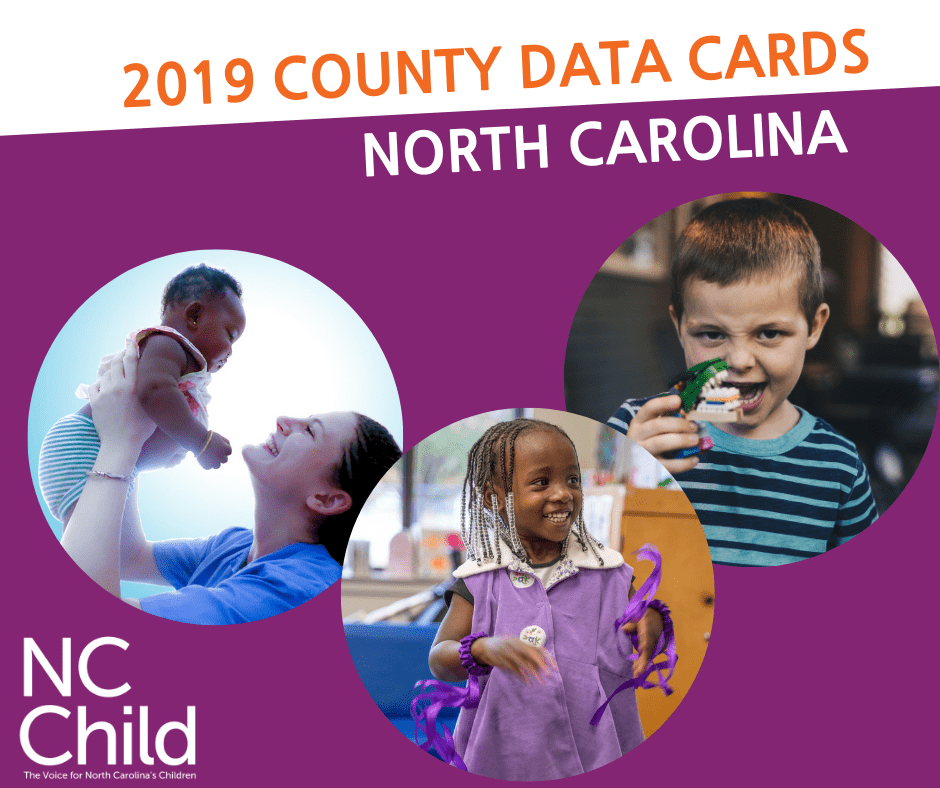
NC Child’s county data cards provide local snapshots of child well-being by county. County data cards present the latest data for key indicators in five areas of children’s well-being: A Strong Start, Family Economic Security, Nurturing Homes and Communities, Health and Wellness, and High-Quality Education. They also compare county data to children in the state as a whole.

Early childhood educators foster the brain development of young children, setting the foundation for them to learn and grow for the rest of their lives. Despite their significant impact on children’s success, these educators often bear the stress of low wages and limited workplace supports.
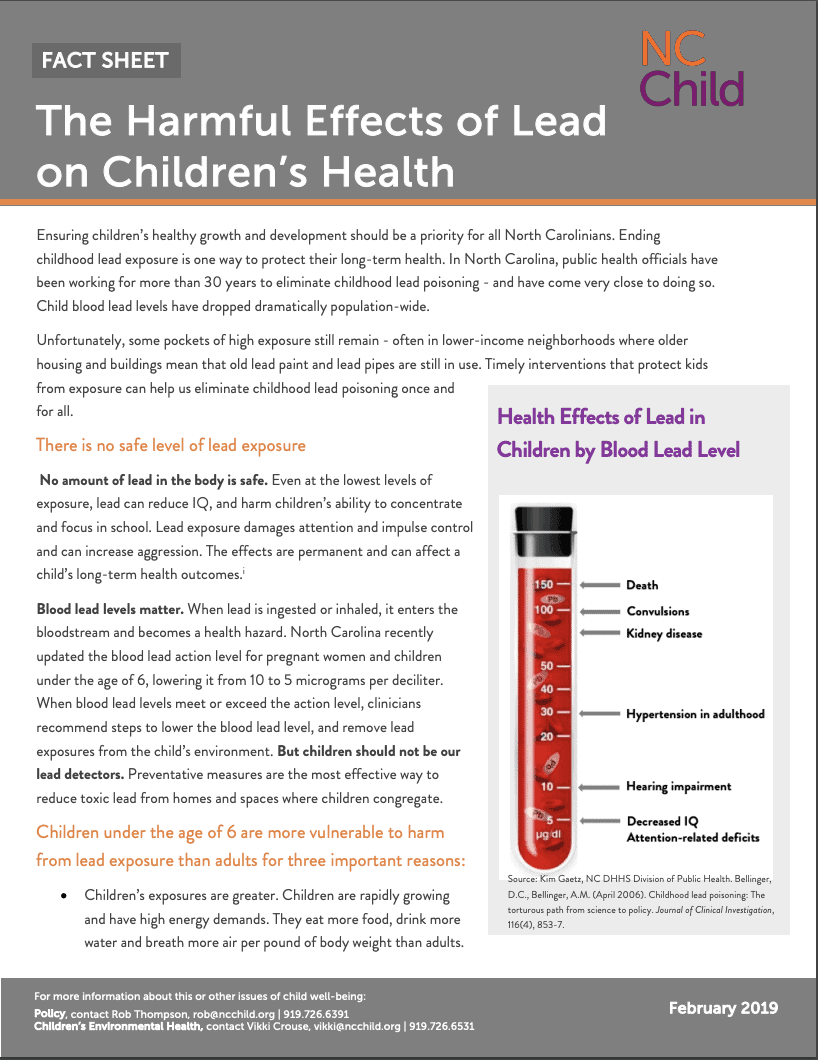
Ensuring children’s healthy growth and development should be a priority for all North Carolinians. Ending childhood lead exposure is one way to protect their long-term health. In North Carolina, public health officials have been working for more than 30 years to eliminate childhood lead poisoning – and have come very close to doing so. Child blood lead levels have dropped dramatically population-wide.
Unfortunately, some pockets of high exposure still remain – often in lower-income neighborhoods where older housing and buildings mean that old lead paint and lead pipes are still in use. Timely interventions that protect kids from exposure can help us eliminate childhood lead poisoning once and for all.
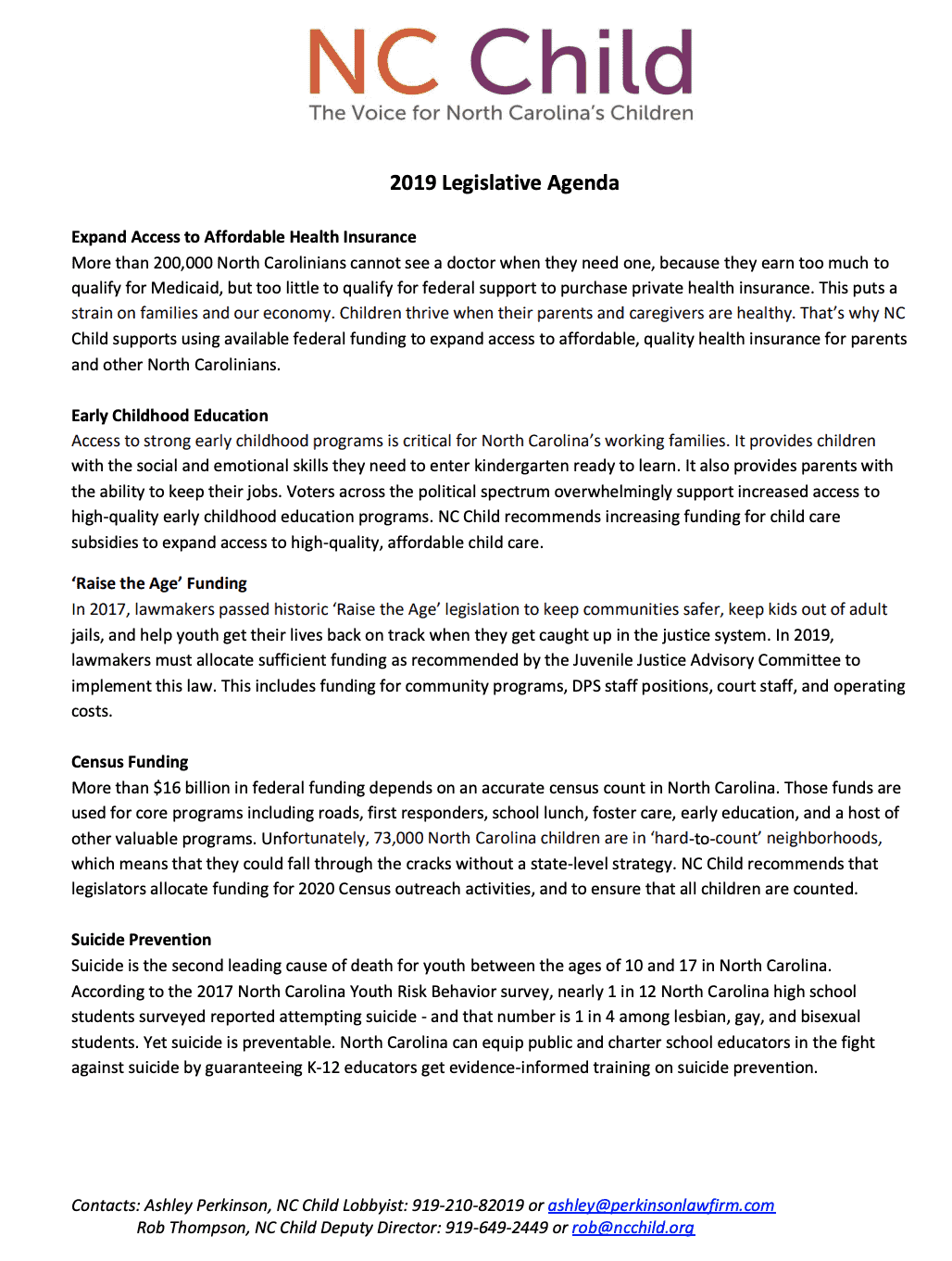
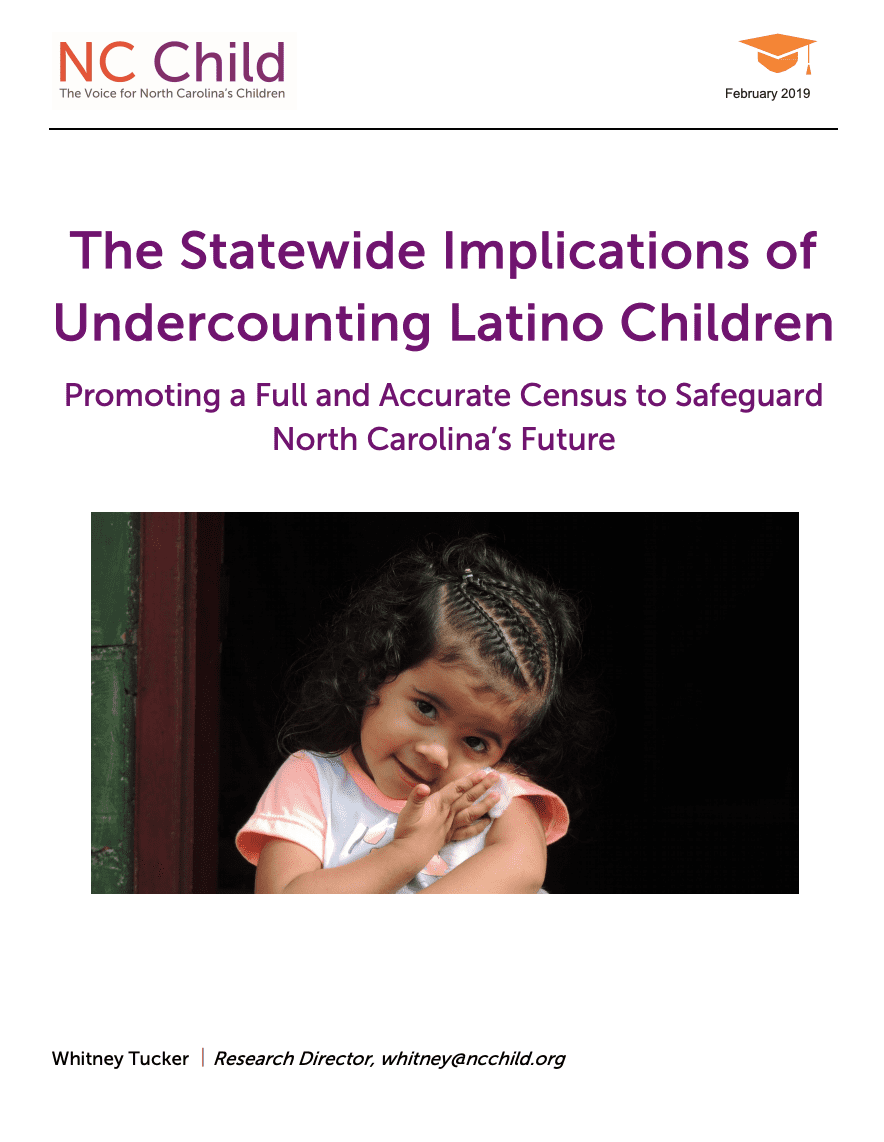
A new report from NC Child and NALEO Educational Fund, “The Statewide Implications of Undercounting Latino Children,” explores one of the major factors that could thwart a complete and accurate count of North Carolina residents and the distribution of critical funding for the state.
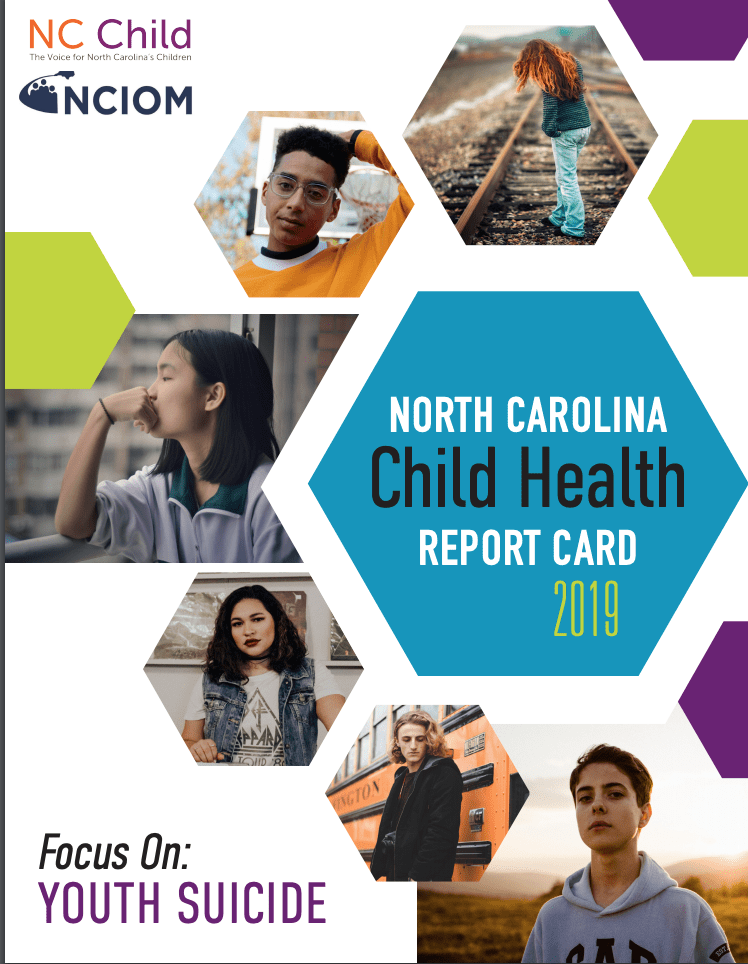
North Carolina’s latest child health report card gives the state high marks for children’s health coverage, but also points out some troubling trends. The rate of youth suicide in the state has nearly doubled over the previous decade. Suicide is now the second leading cause of death among youth ages 10-17 in North Carolina.
The North Carolina Child Health Report Card, issued annually by the North Carolina Institute of Medicine and NC Child, tracks key indicators of child health and well-being in four areas: Healthy Births, Access to Care, Secure Homes and Neighborhoods, and Health Risk Factors. The report provides data on such health concerns and risk factors as asthma, teen births, infant mortality, poverty, and child deaths.
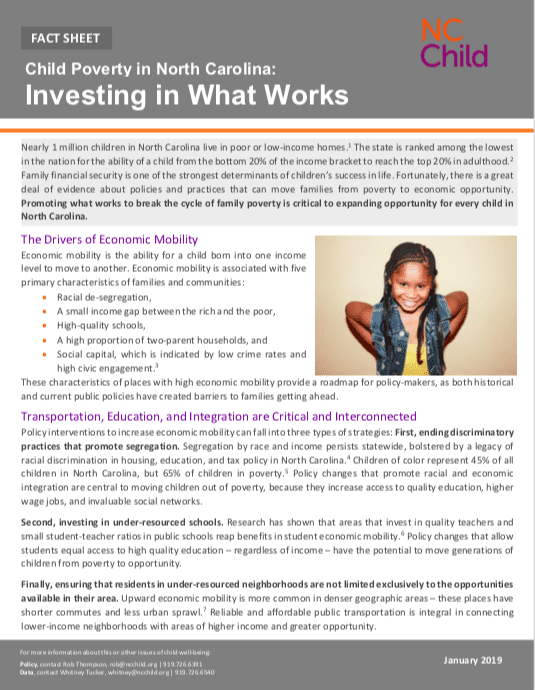
Nearly 1 million children in North Carolina live in poor or low-income homes.1 The state is ranked among the lowest in the nation for the ability of a child from the bottom 20% of the income bracket to reach the top 20% in adulthood.2 Family financial security is one of the strongest determinants of children’s success in life. Fortunately, there is a great deal of evidence about policies and practices that can move families from poverty to economic opportunity. Promoting what works to break the cycle of family poverty is critical to expanding opportunity for every child in North Carolina.
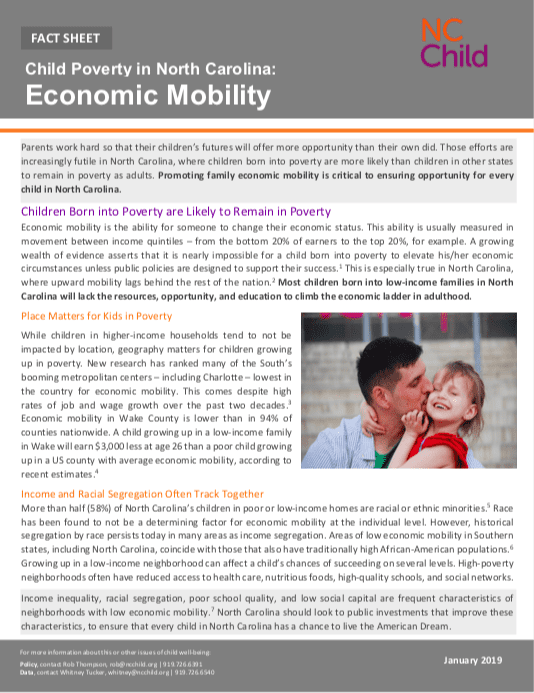
Parents work hard so that their children’s futures will offer more opportunity than their own did. Those efforts are increasingly futile in North Carolina, where children born into poverty are more likely than children in other states to remain in poverty as adults. Promoting family economic mobility is critical to ensuring opportunity for every child in North Carolina.